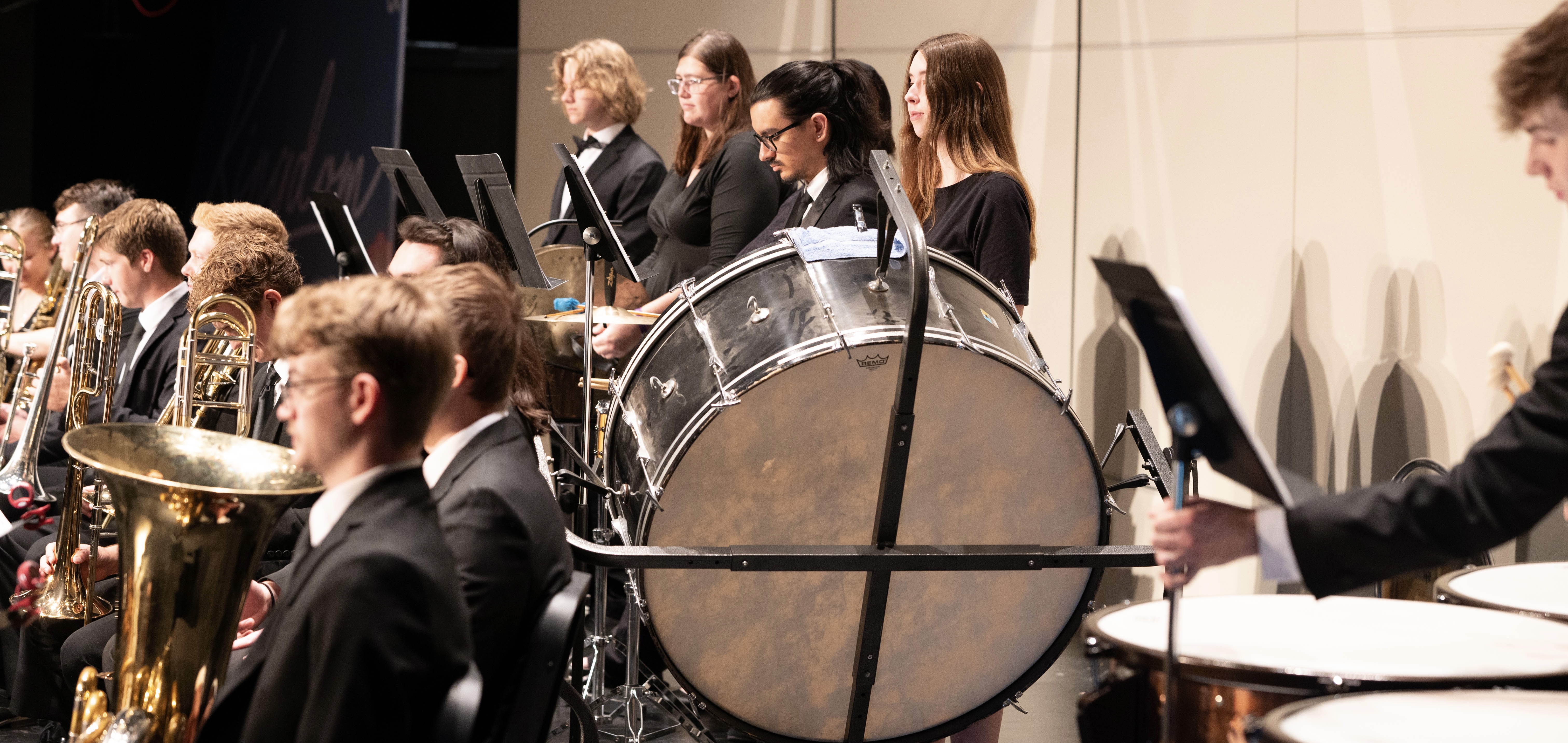Oklahoma Christian University Professor of Cybersecurity Curtis Coleman appeared on a live KOCO 5 News segment Monday morning to talk about Cybersecurity Awareness Month.
Coleman’s interview focused on the role of AI and deepfakes on the modern cybersecurity scene.
“AI is really becoming a threat,” Coleman told KOCO. “At the same time, cybersecurity professionals are engaging it and using AI as a partner.”
In a later interview, Coleman said the studio layout with the weatherman and newscasters in the same room fascinated him.
“They got all these cameras that are robotically being controlled,” Coleman said. “The guy is way back over there. He pushes buttons, and the cameras go wherever he tells them. I thought that was just so cool. This is robotics for television. I wasn’t expecting that.”
Coleman said his excitement to share his knowledge initially manifested as nervousness before the interview.
“I get so nervous,” Coleman said. “What that is, is excitement to share what I know. I decided to relax and enjoy the lady giving me questions and talking to her and letting her know what I think.”
He shared a lesson he learned from his public speaking experience, saying it is up to a presenter to choose whether to be scared or excited.
“One of the things I’ve learned over the years is that the feelings you have, the emotions and the nervousness, is actually your brain interpreting your body,” Coleman said. “Those feelings can be that you’re excited about what you’re going to say, or you’re scared. You have to decide in your mind which one you are.”
Before entering the studio, Coleman said he prayed to calm himself and offered the interview to the Lord.
“I prayed in my car,” Coleman said. “I said, ‘God, whatever you want me to say, I’m just gonna relax with it, and wherever it goes, that’s where it goes. You’ll help somebody.’”
Coleman said KOCO’s questions caught him off guard since he expected a higher-level interview.
“I looked at my last presentation, and I said, ‘They’re gonna want me to talk about everything I talked about at the conference.’ When she started asking me ordinary, common questions about what to do, I wasn’t thinking that way,” Coleman said. “I was thinking too high. Her questions kept on getting lower and lower and lower. How do we — regular people — protect against grandma’s deepfake attack?”
Viewers reached out after the segment asking for personal help, Coleman said.
“I got emails and phone calls following the interview because they saw it,” Coleman said. “They looked me up and found my phone number and found my email and asked for help, you know.”
Coleman said he is recently interested in AI advancements and how they affect the cybersecurity field.
“I’m very much interested in the latest developments of AI and cyber integrating and evolving security,” Coleman said. “AI is now causing us to adapt faster, and we’re getting intelligent things that are helping us.”
Coleman likened his relationship with AI to his relationship with his dog, calling it “non-human intelligence.”
“I don’t use artificial intelligence terminology when I’m talking about it,” Coleman said. “I always use ‘non-human intelligence’ — just like my dog. My dog is non-human intelligence, and it responds to me. It does things, and I show it respect.”
Coleman said he approaches AI as a partner, rather than just a tool.
“As I look at AI, I say, ‘why don’t we partner with it and treat it as a non-human intelligence?’ As it gets smarter and smarter, we become more and more like partners,” Coleman said. “ That’s how I’m approaching the whole AI concept and how to integrate it with cybersecurity.”
Coleman’s full interview with KOCO is available to watch on their website.















Be First to Comment